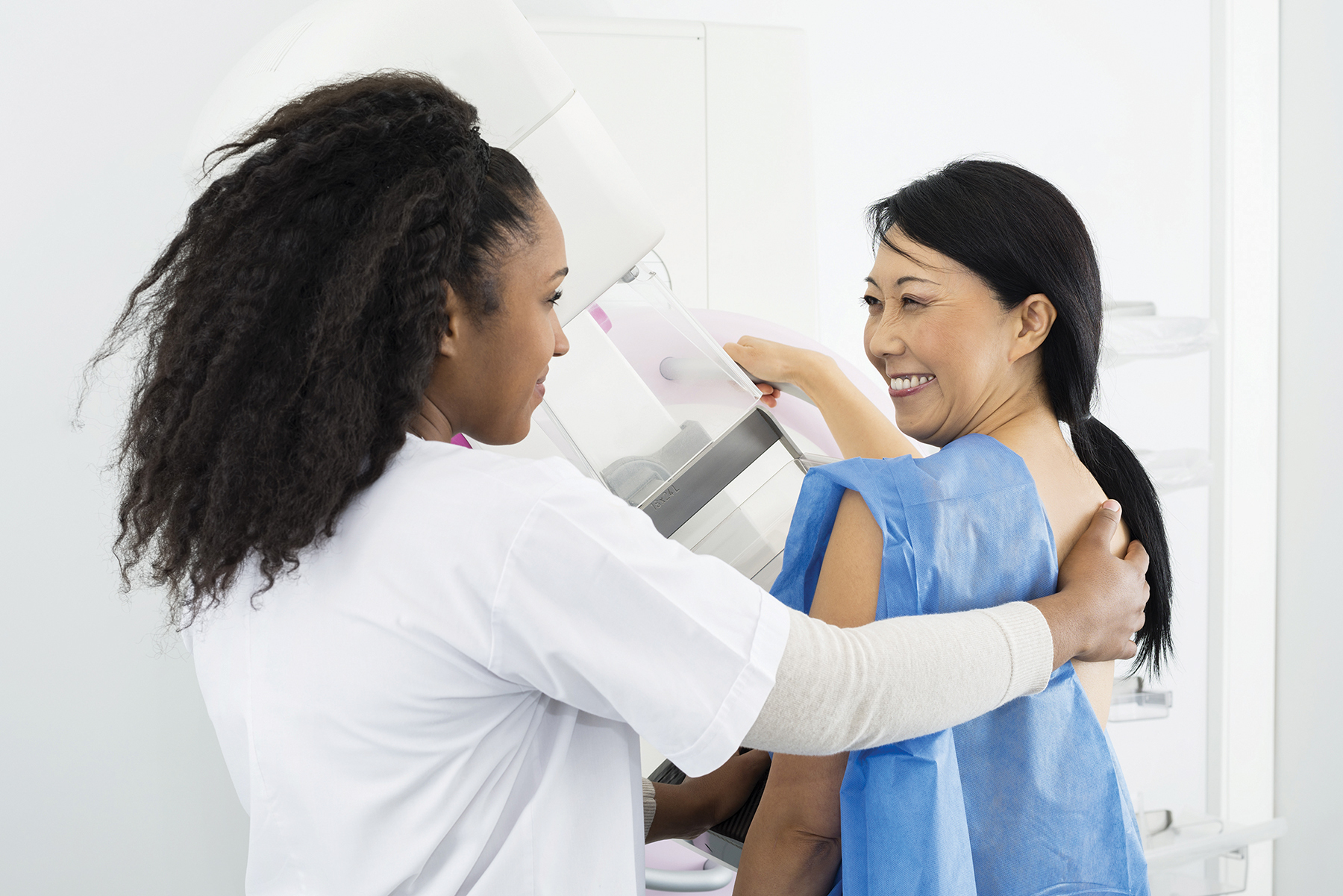Cloudy Skies And Dense Breast Tissue

Imagine you’re looking for a tiny white bird in a sky that’s filled with thick, white clouds. Now, imagine you’re looking at a clear, blue sky looking for that same tiny bird. In which scenario do you think it would be easier to see the white bird? This is the analogy board-certified breast interventional radiologist Dr. Kenneth Crosby often shares with his patients when explaining what it means to have dense breast tissue. And with October being breast cancer awareness month, we wanted to take this opportunity to share it with you as well.
While breast interventional radiologists are trained to look for small white masses on a mammogram, in women with dense breast tissue, it’s simply harder to detect abnormalities.
How do you know if you have dense breasts? In North Carolina, state law mandates that every woman who has a mammogram be informed of her breast tissue type and its potential impact. Specifically, women who have dense breast tissue will also receive the following statement in writing as part of their mammogram result: “Your mammogram indicates that you may have dense breast tissue. Dense breast tissue is relatively common and is found in more than forty percent (40%) of women. The presence of dense tissue may make it more difficult to detect abnormalities in the breast and may be associated with an increased risk of breast cancer. We are providing this information to raise your awareness of this important factor and to encourage you to talk with your physician about this and other breast cancer risk factors. Together, you can decide which screening options are right for you. A report of your results was sent to your physician.”
When talking breast density, it’s first important to understand the various categories of density. Dr. Crosby explains there are four categories as follows:
– Fatty breasts mean the breasts are made up of mostly fat. This accounts for 10% of women.
– Scattered areas of fibroglandular density means some areas of the breast are dense, but most isn’t. This accounts for 40% of women.
– Heterogeneously dense means most of the breast tissue is dense in nature. This accounts for 40% of women.
– Extremely dense means nearly all the breast tissue is dense. This accounts for just 10% of women.
Generally, those with heterogeneously dense or extremely dense breasts are considered to have dense breast tissue and at a slightly higher risk for developing breast cancer, although doctors aren’t yet sure why this is the case. With that said, dense breast tissue is extremely common – accounting for 50% of all women – most of whom will never develop breast cancer.
An additional option for women with heterogeneously dense or extremely dense breasts is a Fast Breast MRI screening. This 15-minute screening can provide additional information when used in conjunction with a 3D mammogram. While this exam is not covered by insurance, imaging providers usually offer this screening at a significantly discounted self-pay rate. Dr. Crosby reiterates that when it comes to breast cancer screening, mammogram is considered the gold standard. Still, the Fast Breast MRI is available for that added peace of mind.
When a radiologist needs to look at any areas of concern or abnormalities identified on a mammogram, a breast ultrasound and breast MRI studies are helpful tools. A Breast MRI (a more detailed study than a Fast Breast MRI) is also used in some patients to evaluate the extent of disease in patients with biopsy-proven malignancies or to evaluate for implant integrity in patients with silicone implants.
With COVID having delayed screenings for many women the last couple of years, Dr. Crosby recommends staying on schedule for getting an annual screening mammogram and making sure you get a yearly clinical breast exam from a primary care provider or OB/GYN.
Raleigh Radiology
To schedule your mammogram, call Raleigh Radiology.
- 919-781-1437.

